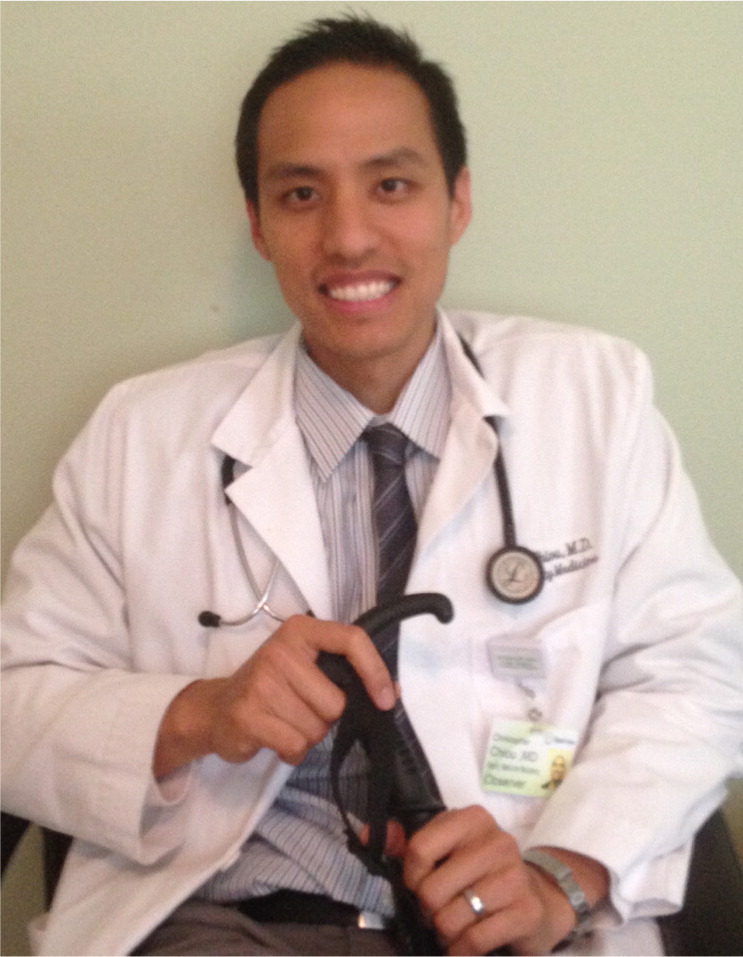
Am Fam Physician. 2016;93(11):911
When I awoke with double vision one morning in 2013, my life took a drastic turn off course. In my wildest dreams, I could not imagine the events that would soon transpire: the finding of a 4.5-cm epidermoid tumor in my brainstem, and a 16-hour surgery followed by a one-week stay in the intensive care unit and a one-month stay on the rehabilitation floor. My recovery has been slow, yet progressive. I have problems with my speech and balance, but my biggest struggle is with severe episodic tremors of my head and neck, or titubation.
I am a family physician. I initially had great angst when it came to the perception patients would have of me. A local surgeon who had herself undergone several brain surgeries told me, “Chris, patients will understand. They are amazing like that.” My ordeal has proven this to be completely true: patients are amazing. They should be the center of our medical universe. I am lucky in that my own experience has helped me focus my priorities.
I explain to patients that it may look as if I am a bobblehead toy, but that the shaking typically lasts for only five minutes. I ask them to try to ignore it and let them know that it does not affect my cognition, and that I am not having a seizure. It is to the point that I alert patients to the possibility of its occurrence in writing prior to each initial encounter. The letter I provide details my disabilities, in hopes of spending as little time as possible on my condition during the visit. The last line of this letter reads, “Thank you for taking the time to read this, and thank you for the honor and privilege of seeing you as a patient today.”—chris chiou, md

COMMENTARY
Chris is right to highlight what a privilege it is to work with his amazing patients. That is how I felt about him from the start. At our first meeting, I took a deep breath and introduced myself to him and his very pregnant wife, and I told Chris that he had an issue we needed to take care of.
Based on my 30 years as a neurologist, I knew his situation was not going to be a picnic, even before we met. An examination confirmed he had a cerebellar-like syndrome. I turned to Chris, paused, and then thought for a moment. “Your unsteady feeling, did it just happen or has it been going on for months?” His wife answered, “I think Chris has mentioned this to me for years.”
When he nodded yes, I found myself smiling along with Chris for the first time. Not being acute, the tumor was likely benign, and a surgical cure possible.
note: This commentary is an adaptation of a version that appeared on Dr. Chiou's blog.
